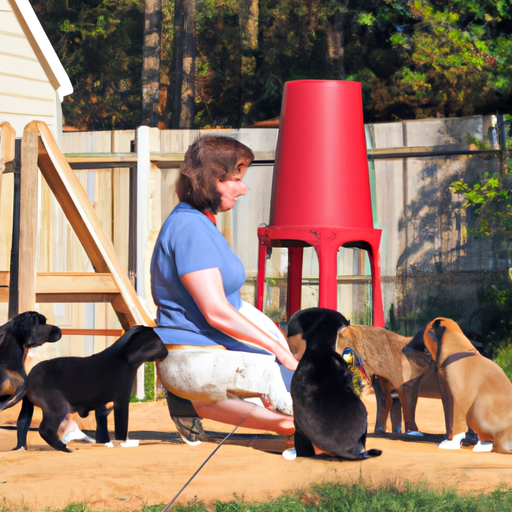Understanding Your Dog’s Needs
Dear caregivers, training your dog to pee outside might seem daunting at first, but remember you are not alone. Understanding your dog is the first step to success. Dogs are creatures of habit, they love routine. This is your ally in this training journey.
- Age of your dog: Puppies need to pee more often. They usually need to go out every hour, especially after meals, playtime, or a nap.
- Breed of your dog: Smaller breeds have smaller bladders and faster metabolisms, consequently, they need more frequent outings.
- Health of your dog: Some health conditions can cause excessive urination. If your dog is having trouble holding their urine, consult your vet.
Create a Consistent Routine
Consistency is key. Dogs thrive on consistency, so stick to a schedule. This includes:
- Feeding times: Regular feeding times will regulate your dog’s digestive system, making their “pee times” more predictable.
- Going outside: Take them out at the same times each day, such as after meals, after nap, before bed, etc.
- Use a leash: Even in a fenced yard, this helps guide them to the right spot.
Praise Your Dog
Positive reinforcement is a powerful tool. Dogs want to please their owners. When they do something right, let them know.
- Immediately praise them: As soon as your dog finishes peeing outside, shower them with praise.
- Use treats: Give them a small treat immediately after they finish. This helps them associate peeing outside with rewards.
Deal with Accidents
Accidents are inevitable. But they can be opportunities for learning.
- Don’t punish: Dogs don’t understand punishment after the fact. If you catch them in the act, interrupt them and take them outside.
- Clean thoroughly: Dogs are drawn to the scent of their urine. Use an enzymatic cleaner to remove the smell and discourage them from peeing there again.
Training Specific Breeds
Different dog breeds may require slightly different training methods. Here’s a quick guide:
| Breed | Tips |
|---|---|
| Beagle | Love to follow their nose. Keep them focused. |
| Boxer | Can be stubborn. Keep training sessions short and fun. |
| Dachshund | Love to be praised. Use positive reinforcement. |
| Labrador | Can be energetic. Ensure they have plenty of exercise to control their energy. |
Frequently Asked Questions
1. How long does it take to train a dog to pee outside?
It varies based on the dog’s age, breed, and consistency of training. Puppies usually take 4-6 months.
2. My dog keeps having accidents. What am I doing wrong?
Not necessarily anything. It could be a medical issue. If in doubt, consult your vet.
3. Should I use pee pads?
Some people find them helpful, especially for apartment living. But remember, the goal is to get them to pee outside.
4. What if my dog is scared to go outside?
Use positive reinforcement. Make it fun. If fear persists, there may be an underlying issue that needs addressing.
5. How can I tell if my dog needs to go?
Common signs include: pacing, whining, circling, sniffing, or going to the door. Over time, you’ll learn your dog’s particular signals.



